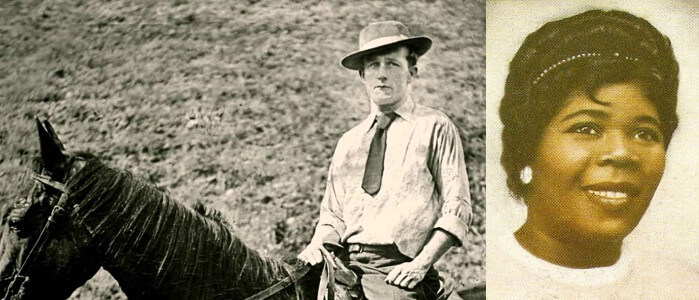
A musical icon and one of the best-selling artists of all time, Bob Marley lived most of his short adult life in the spotlight. It was in marked contrast to his enigmatic father about whom little more is known, apart from a less than illustrious World War One record.
Norval Sinclair Marley, born in the UK in 1885, was rarely talked about, even by those closest to his reggae star son.
Norval Marley's war record however, casts a brief and occasionally bright light on his story.

'
Neurotic type'
Giving his place of birth as Crowborough, East Sussex, he enlisted in Liverpool on 12 August 1916, after arriving from Cuba, via the USA.At 5ft 5ins (1.65m) tall and weighing 124 lbs (56kg), Norval gave his occupation as a construction engineer.
He was declared fit and, like many others, he soon found himself at one of the war's biggest training camps, at Park Hall, near Oswestry, in Shropshire.
Home to more than 20,000 men, most were trained in trench warfare at the site, ready for the frontline. Norval Marley, however, was not to be among them, local historian Keith Pybus said.
At the beginning of September 1916 he reported sick at Park Hall as a result of a strain during training with the 10th Liverpool Scottish.
Mr Pybus said the medical report described him as a "neurotic type of man" who claimed "incontinence of urine" and told doctors he wet the bed at night.
A month later he was sent to the military hospital in Oswestry, where he underwent an operation, despite the fact no problem was found.
He was soon transferred to a support battalion, which eventually became the Labour Corps, and would never see frontline action, rather spending the war in the UK.
Rumours 'romanticised'
Mr Pybus said: "[Those battalions are] called salvage companies, but sewage might be closer to the truth. It's laundry, it's sanitation."If you're unfortunate enough in the army to be wetting the bed, that does not especially make you look as if you're of heroic status."
Records show Mr Marley later received a pension because of "ill health caused by army service" for "incontinence of urine and non attributed rheumatism".
Later rumours that he had been a captain in the Royal Marines were "romanticised", Mr Pybus said, although it was unclear whether Mr Marley himself was responsible for them.
His nephew Dr Norval Marley, said that after the war his namesake worked in Lagos, Nigeria, either in the Military Police or the local army, while the country was a British colony,
It is believed that he acquired the title of captain while stationed there.
Ms Anderson said many of the stories about Mr Marley came from Bob's mother Cedella and seem to have had little or no truth about them.
Bob's father, at the age of about 60, met and later married 18-year-old Cedella Malcolm, while working as a supervisor on a plantation in Jamaica.

In February 1945, she gave birth to Nesta Robert (Bob) Marley and the couple separated not long after.
As Norval Marley disappeared back into the shadows of history, his son would of course soon enter the limelight, ensuring his father would never quite be forgotten.
Park Hall itself was to follow its one-time resident into obscurity.
The old hall that gave the site its name was burned down on Boxing Day 1918.
After the war other buildings fell into disrepair, although World War Two would see troops return for training, with it also serving as a prisoner of war camp.
After 1945, it remained in use by the military until it closed in 1975 although would see neither the troop numbers nor importance that it held during WW1.
Today, much of it is used as farmland, although parts of the original site feature a visitor attraction, while other fields make up a showground.


